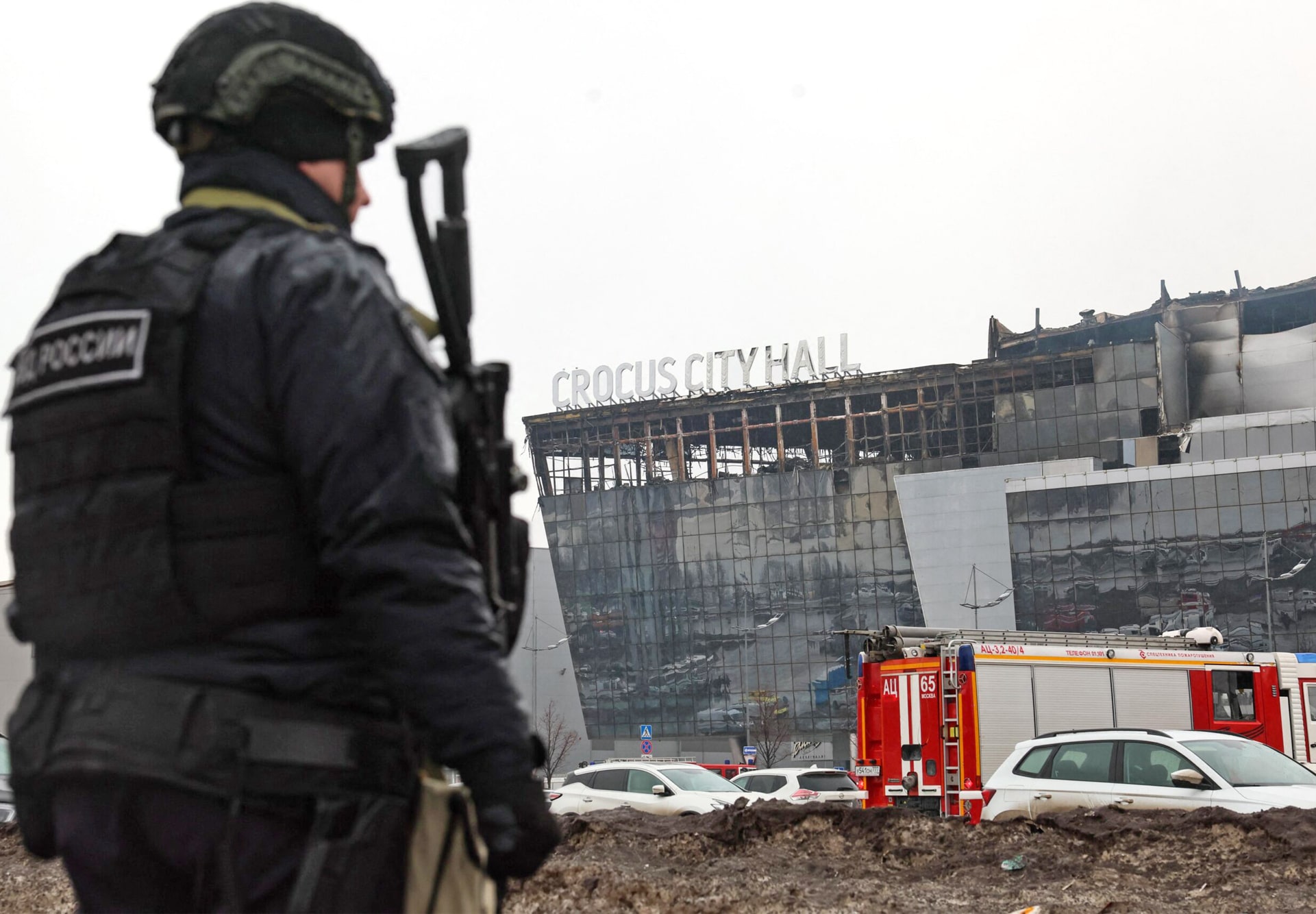Apparently, war beckons. The imperialist greed that pushed Russia to attack Ukraine is increasing the involvement of the entire European continent in those regions where the war has never stopped, in the Middle East and Africa.
The ISIS terrorist attack on the Crocus City Hall in Moscow was conceived and directed from the bases that this organization has in Afghanistan. ISIS, in turn, was certainly stimulated to greater activism, even outside its traditional areas of intervention, by the monstrous attack conducted by Hamas against Israel on 7 October. First he moved to Iran, with the attack in Kerman, aiming with some success to fuel the conflict with Pakistan. At the same time he had developed greater activism in Iraq and Syria, against the Americans, Russians, the Assad government, and in competition with Hezbollah (which supports Assad, but is anti-American and anti-Israeli), the latter thus far kept partially in check by Tehran, to avoid a direct clash with Israel.
So Europe’s eastern front is starting to merge with the Mediterranean and Middle Eastern front, already stressed by the drastic changes that have occurred in the energy market following the forced reorientation of Russian (and Iranian) exports towards Asia. China and some other states, such as India, take advantage of this tactically to reduce their energy bills, but overall wars negatively affect the growth of the global economy. Also because the effects of conflicts that are only apparently geographically limited are sometimes surprising. Who predicted that the war in Gaza would have a major negative impact on freedom of navigation and shipping routes and costs?
The social effects of war and the consequences of the new technological revolution
The effects can be even more complex. The tumultuous growth of anti-Semitism has now affected even the largest and most prestigious training centers for Western youth, from Harvard to the Normale of Pisa. In these ways, fragmentation and litigiousness are growing within Western society, reawakening ancient specters and fueling the factionalism typical of social media, with devastating effects on political debate and therefore on the very stability of our democratic systems.
Some political leaders stand out as the biggest profiteers and, at the same time, as those who contribute most to fueling this disorder, from Vladimir Putin to Benjamin Netanyahu, passing through Donald Trump. But they are certainly not the only ones: the temptation to ride together with the horsemen of the apocalypse is strong in many other cases too.
In this disorder we are also experiencing the first steps of what is announced as a new great technological revolution destined to redesign the balances born from the industrial revolution of the past (and therefore also the forms of social aggregation, the conduct of wars, the maintenance and evolution of the current system of nation states, and much more). If currently the promises of this revolution are barely sketched out, the transformative effects on the labor market and on the connective tissue of the most developed societies (which have gained most from past revolutions) are already starting to be felt. Protest and fear of change are therefore stronger than promises for the future and increase the difficulties of the transition.
On the other hand, the process triggered is now irreversible, also because it seems to offer the so-called South of the World, which was least able to profit from past industrial revolutions, an opportunity to significantly increase its weight and competitiveness. It is therefore a question, from our point of view, of trying to give order and meaning to the technological revolution, so that it does not conflict with the political and social achievements that positively characterize our countries. It is also a question of not abandoning the control and government of this revolution into the hands of antagonistic systems that would rather break this continuity.
Not an easy scenario therefore, because the more traditional conflict, fueled by fanaticism or the will to power, is also accompanied by a systemic one – or at least a very strong competition – to decide on the future forms of governing globalization.
The importance of finding common solutions to global problems
But naturally even the most disastrous and conflictual scenarios have important counter-forces within them. The international system is still strong and does not seem to want to easily give in to self-destructive forces. Let’s think about the flexibility with which it manages changes, even the apparently more complex ones, such as the reorganization of the energy market, and above all the resilience of value production chains, which survive political divergences and impose an acceptable level of cooperation between opposing systems .
There is a general and widespread awareness of the need to find common solutions to global problems, which individual states, however large and powerful they may be, are actually unable to address alone – from the environment to pandemics, to managing the consequences of technological revolution underway – even if the different starting points sometimes mask the existence of a strong common interest and make this process slow and difficult. There is even a confused but real recovery of the European initiative, still very partial and insufficient, but in any case in clear contrast with the divisive and conflictual forces.
War scenarios tend to polarize the attention of public opinion and increase artificial divisions between partisans of opposing camps, as if we were witnessing a clash between opposing groups of supporters. In reality we cannot aim for very clear solutions that identify the winners and losers without possible doubt. Certainly the war in Gaza will not end with an unconditional surrender and the war in Ukraine will probably pass, at best, through a difficult compromise. On the other hand, beyond Putin and the obsessions that seem to mobilize too much of the Russian leadership today, is it perhaps in Europe’s interest to push Russia ever further towards Asia and renounce centuries of rapprochement between Moscow and the West?
